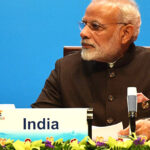
While the results of Thailand’s March 24 elections are somewhat undetermined, the advent of a new progressive pro-democracy voice has ruffled the feathers of the ruling class. Thanathorn Juangroongruangkit, the multimillionaire leader of the upstart Future Forward Party (FFP), which took third place overall is under fire from his political opponents. FFP finished just behind the pro-junta Palang Pracharath party (PPRP) and the Pheu Thai Party, which has been linked to exiled billionaire and former Prime Minister Thaksin Shinawatra.
The same political interests that helped turn Thaksin into a political villain have coalesced around Thanathorn, who appealed to the urban, middle classes as well as a large swath of young voters that have stayed away from the Red-Yellow divide that has defined Thai politics for the past decade or more. Thanathorn’s popularity–and his message, that Thailand does not need “governance through guns”, make him a greater threat to the junta than Thaksin ever was.

To undermine his credibility and that of the FFP, anti-democracy forces have unleashed a string of accusations at Thanathorn, faces a sedition charge with a possible seven-year jail sentence if convicted, as well as allegations he violated Thailand’s draconian Computer Crime act. Thanathorn and the leaders of the FFP are accused of giving false information about the military in a June 26, 2018 speech on Facebook in which they alleged that the military government was recruiting members of major political parties to join new parties set up in support of the junta.
Thailand’s Election Commission (EC) accused Thanathorn of breaching the country’s election law, moving to disqualify the FFP leader from Parliament. The Constitutional Court accepted the EC’s petition and Thanathorn’s parliamentary duties suspended. In a 9-0 ruling, the Constitutional Court agreed to take up a complaint filed against Thanathorn accuses him of breaking election laws by owning shares in a media firm, a charge that comes with a 10-year prison sentence if found guilty. The EC complained that the auto parts heir still owned 675,000 shares in V-Luck Media Company after registering as a candidate for Parliament, an action that is banned under the Thai Constitution. The Court also ruled that his MP status would be suspended while judges deliberate the case.
Even the media has played an unwitting role in the demonization of Thanathorn. In March, a broadcaster for The Nation TV came under fire for airing a doctored clip of Thanathorn and Thaksin. The clip aired on the channel’s Khao Kon Khon Nation news show, and was proven to include audio spliced from old recordings of Thaksin. The clip framed Thanathorn as secretly taking orders to dupe young voters from Thaksin.
The cases against Thanathorn are just the latest in a series of moves designed to harass and suppress Thailand’s pro-democracy movement and undermine anti-military parties. Elites have pursued criminal cases against Thanathorn and other anti-military activists in an attempt to undercut and discredit the junta’s growing chorus of critics. Thailand’s institutions, such as the Election Commission and the Constitutional Court are easy vehicles. Politicization of democratic institutions remains a problem in Thailand. For example, seven of the nine judges on the Constitutional Court were appointed or had terms extended during the junta’s rule. If the Court finds Thanathorn guilty, he could be barred from politics for up to 20 years–as well as endangering the reputation and political future of the FFP.
Thanathorn is an expected victim of an orchestrated plan to help pro-military political parties gain power, to weaken pro-democracy parties, and a broader effort by the junta to suffocate legitimate political dissent in the country. Through threats of sedition, violations of the Computer Crime Act, and lèse-majesté for expressing ordinary political views, pro-democracy activists have been threatened with prosecution. According to Human Rights Watch, more than 100 have already been prosecuted for demanding transparency and the lifting of political restrictions on elections.






